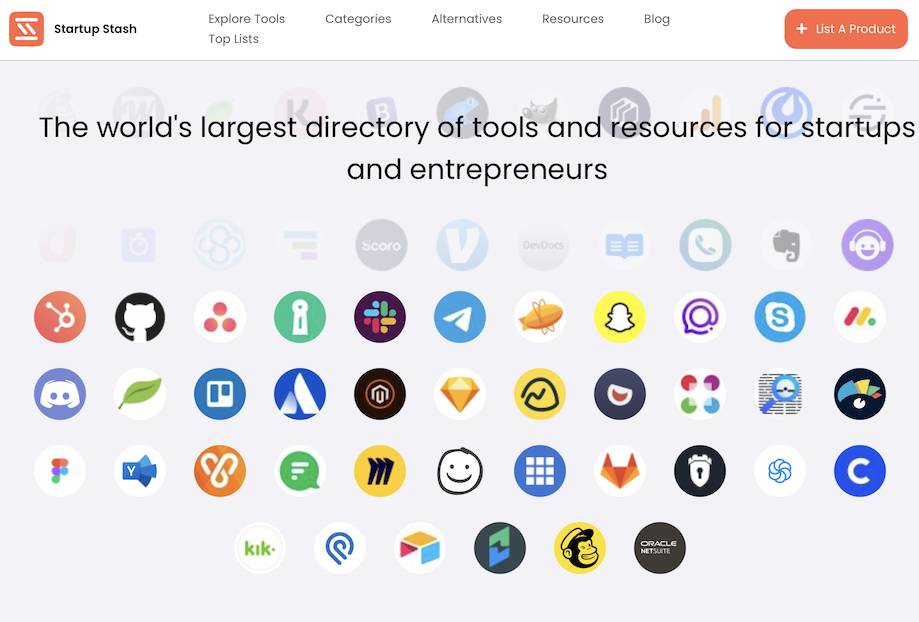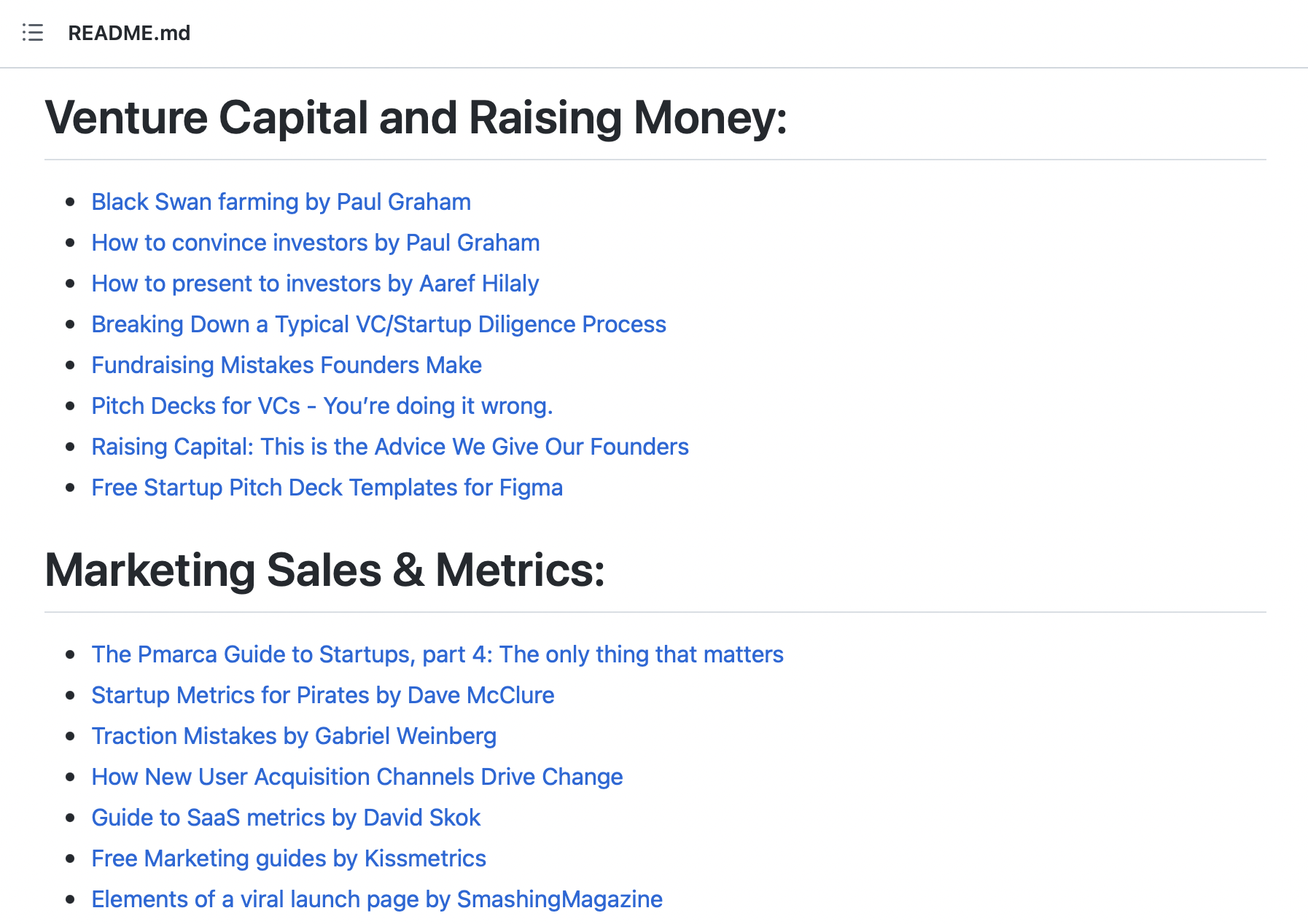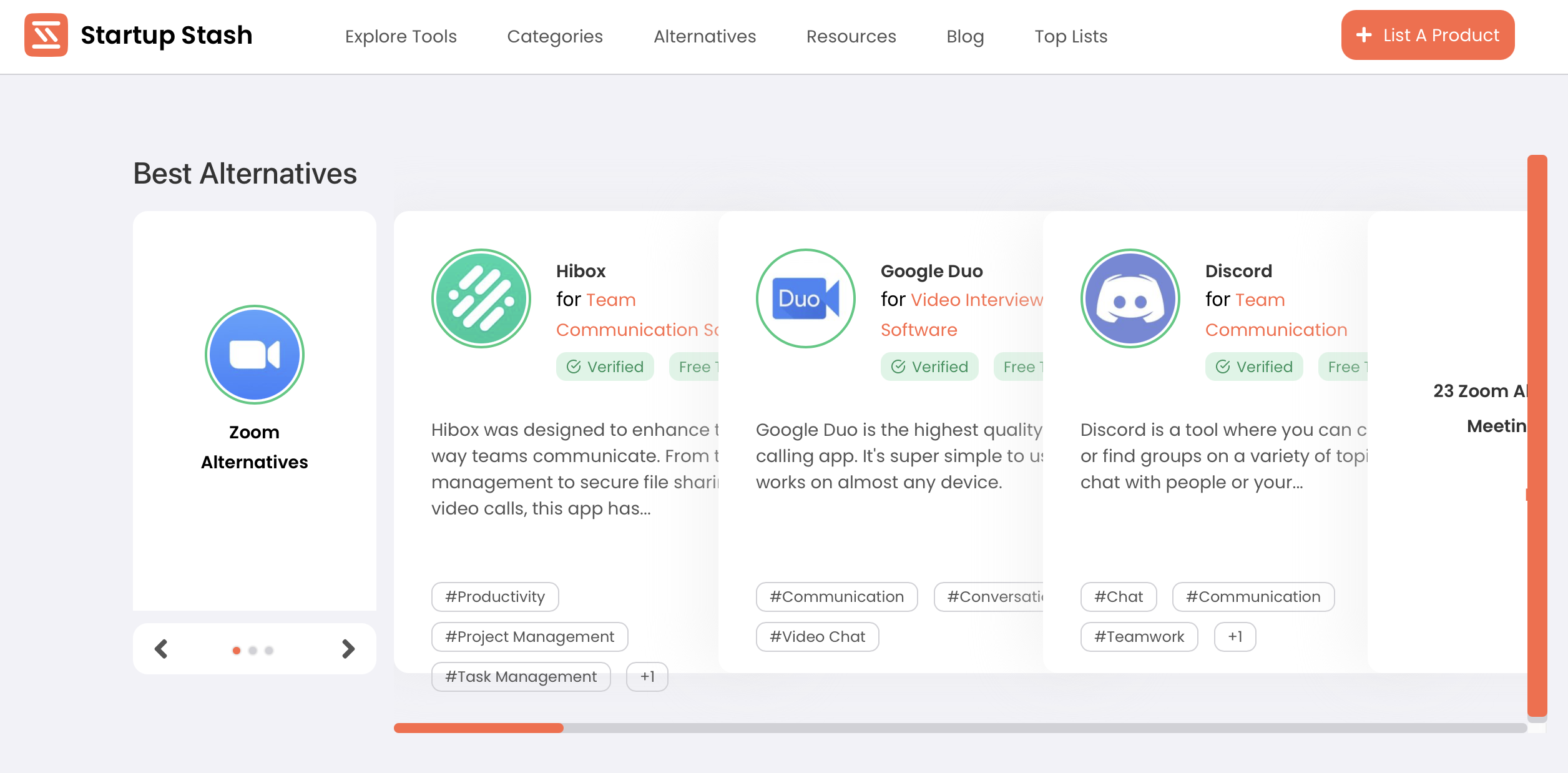Lists of Startup Tools Are Not Useful
There’s a common trend among companies, blogs, and even Github repositories to create a list of “tools” for startups. Here’s a startup built on that premise: Startup Stash. Here’s a Medium article: 400 Free Resources And Tools For Entrepreneurs, Freelancers and Startups. Here’s a Github: Awesome Startup. Here’s a VC resources page: Antler Toolbox.

I too love being overwhelmed with options.
When I saw the first of these appear, I think it was a list on GitHub, it was pretty cool and I even bookmarked the site. But by now, these resource lists are becoming incredibly useless and boring.
When I need to solve a problem, I want a tool that’s best suited to my particular needs. As it often happens building a startup, I only have a vague understanding of said problem, and no time to become an expert. When I’m given a list of 400 different options, I would need to thorough diagnosely my problem with respect to the tradeoffs of those tools.

When and how am I supposed to use these?
And there’s the problem. There’s never been a scenario in which anyone has ever thought “Wow, if I had a long list of options that would solve my issue.” These lists offer way too many alternatives, when in reality I only want to consider the top handful that most people use, because I can probably trust them and they probably cover my use case. Furthermore, these lists provide very little contextual information, often only a numeric rating or a hashtag, to describe the product. They don’t present the tradeoffs at all.
The whole point of collecting these options is so that I can pick the best one, but how do I know you’re not going to waste my time? The lazy implementation of a “rating” system reduces my decision-making to essentially trusting your black box algorithm. Supposedly, your data showed that this is the “best” tool for most people. I’m sorry to say, the quality of your ranking system isn’t that good.

Wow, thanks for letting me know the Zoom alternatives are also communication tools! I still have no idea which one I should use under what circumstances!
At this point, I resort to my friends and my network to get the best recommendations, because I know what they’re like, what tools they would use, and I trust their judgement. More than some random Github, at least.
To make the right choice, I just need to know why I’m picking one over the other, which product does better under what circumstances, and thus which option fits my situation better. Just give me the top 3 options that will cover 80% of my scenarios, each with one sentence telling me when I would use it over the others. No more lists.
← Back to home